Treatable conditions
Due in part to the distribution of the endocannabinoid system throughout the human body, and it’s broad regulatory profile, cannabis has the potential to treat a relatively large range of conditions compared to targeted pharmaceutical drugs.
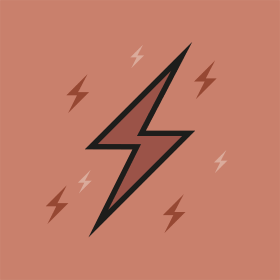
While acute pain conditions like muscle sprains or broken bones remain best treated by standard pharmaceuticals, chronic pain, pain lasting for a sustained period of time, often as the result of a chronic medical condition such as neurological disease or long-term sequelae from injury, is more difficult to manage.
Cannabis treatments offer a potentially preferable clinical pathway for treating chronic pain, notably over traditional opioid prescriptions that can lead to their own severe side effects.
- Neuropathic Pain
- Arthritis
- Lower back pain
- Fibromyalgia
- Cancer-related pain
- Joint pain
- Muscle aches
- Burning pain
- Fatigue
- Sleep problems
- Loss of stamina and flexibility, due to decreased activity
- Mood problems, including depression, anxiety, and irritability
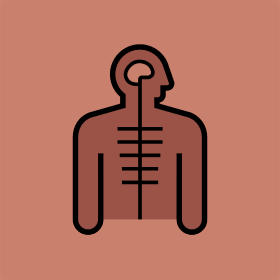
Neurological conditions like Multiple Sclerosis and Parkinsons have been historically very difficult to treat, with most therapies focussing on managing the symptoms of these conditions, like chronic pain and spasticity.
Numerous organisations focussed on patient support for these conditions, supported by research, have highlighted some notable clinical benefit of medical cannabis in managing these symptoms and improving quality of life.
- Epilepsy
- Alzheimer’s
- Parkinson’s
- Huntington’s
- Multiple Sclerosis
- Tourette’s
- Other movement disorders
- Persistent or sudden onset of a headache
- A headache that changes or is different
- Loss of feeling or tingling
- Weakness or loss of muscle strength
- Loss of sight or double vision
- Memory loss
- Impaired mental ability
- Lack of coordination
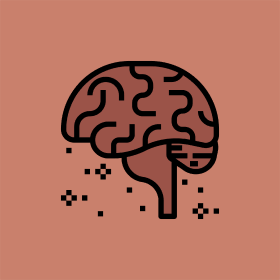
Psychological conditions like anxiety, depression and PTSD can be quite easily brought about by a wide array of traumas, but their treatment is often a complex and bespoke matter of individualized treatment, usually centered around psychiatric therapy. Medical cannabis has been identified as a potentially effective adjunct to this kind of therapy, in which subtle mental state changes can assist in the structured process of discussing traumas.
- Anxiety
- Post-traumatic stress disorder (PTSD)
- Depression
- Insomnia
- Attention deficit/Hyperactivity disorder (ADHD)
- Feeling sad or down
- Confused thinking or reduced ability to concentrate
- Excessive fears or worries, or extreme feelings of guilt
- Extreme mood changes of highs and lows
- Withdrawal from friends and activities
- Significant tiredness, low energy or problems sleeping

Existing steroidal treatments for gastrointestinal conditions like Crohn’s or IBD have limited records of success and can cause adverse side effects. In the case of Crohn’s disease treatment can often fall upon invasive and life-reducing surgeries. Medical cannabis provides an effective pathway for managing the symptoms of these and other gastro conditions while preserving quality of life to a much greater degree.
- Inflammatory bowel disease (IBD)
- Crohn’s diseases
- Ulcerative colitis
- Bloating & excess gas
- Constipation
- Diarrhea
- Heartburn
- Nausea & vomiting
- Abdominal pain
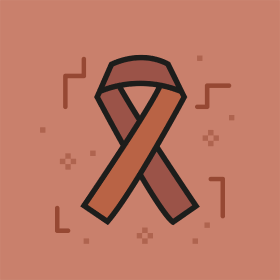
While there is not enough current evidence to support the use of medicinal cannabis as a front line treatment for cancer, cancer treatments like chemotherapy can potentially be more sympathetically managed with medical cannabis. This primarily applies to the function of cannabis in regulating cancer symptoms and treatment side effects such as chronic pain, nausea and lack of appetite.
- Cancer symptom and treatment side effects management
- Nausea and vomiting from cancer chemotherapy
- Neuropathic pain
- Appetite

Much as cannabis can be used to alleviate a range of symptoms demonstrated in a number of conditions, medical cannabis has great potential value in the management of end-of-life care or simply in treatments designed to improve quality of life at any stage. This has notable applications in supporting geriatric populations, where chronic pain and other debilitating conditions are common.
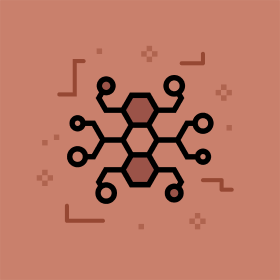
The area with perhaps the most overwhelming body of supporting evidence for medical cannabis is in the management of severe treatment-resistant epilepsy. Rare epileptic conditions like Dravet and Lennox-Gastaut syndrome have a severely debilitating impact on the quality of life of young children, and are potentially fatal conditions in the event of the most severe forms of seizure.
While CBD treatments have been discovered to work highly effectively in reducing the frequency and severity of seizures, combined CBD/THC therapies have been observed to manage these conditions to a dramatic degree, providing some of these children with something approximate to a normal and healthy childhood.
- Intractable epilepsy
- Dravet syndrome
- Lennox-Gastaut syndrome
- Juvenile myoclonic epilepsy (JME)
- Temporary confusion
- A staring spell
- Uncontrollable jerking movements of the arms and legs
- Loss of consciousness or awareness
- Psychic symptoms such as fear, anxiety or deja vu

While acute pain conditions like muscle sprains or broken bones remain best treated by standard pharmaceuticals, chronic pain, pain lasting for a sustained period of time, often as the result of a chronic medical condition such as neurological disease or long-term sequelae from injury, is more difficult to manage.
Cannabis treatments offer a potentially preferable clinical pathway for treating chronic pain, notably over traditional opioid prescriptions that can lead to their own severe side effects.
- Neuropathic Pain
- Arthritis
- Lower back pain
- Fibromyalgia
- Cancer-related pain
- Joint pain
- Muscle aches
- Burning pain
- Fatigue
- Sleep problems
- Loss of stamina and flexibility, due to decreased activity
- Mood problems, including depression, anxiety, and irritability

Neurological conditions like Multiple Sclerosis and Parkinsons have been historically very difficult to treat, with most therapies focussing on managing the symptoms of these conditions, like chronic pain and spasticity.
Numerous organisations focussed on patient support for these conditions, supported by research, have highlighted some notable clinical benefit of medical cannabis in managing these symptoms and improving quality of life.
- Epilepsy
- Alzheimer’s
- Parkinson’s
- Huntington’s
- Multiple Sclerosis
- Tourette’s
- Other movement disorders
- Persistent or sudden onset of a headache
- A headache that changes or is different
- Loss of feeling or tingling
- Weakness or loss of muscle strength
- Loss of sight or double vision
- Memory loss
- Impaired mental ability
- Lack of coordination

Psychological conditions like anxiety, depression and PTSD can be quite easily brought about by a wide array of traumas, but their treatment is often a complex and bespoke matter of individualized treatment, usually centered around psychiatric therapy. Medical cannabis has been identified as a potentially effective adjunct to this kind of therapy, in which subtle mental state changes can assist in the structured process of discussing traumas.
- Anxiety
- Post-traumatic stress disorder (PTSD)
- Depression
- Insomnia
- Attention deficit/Hyperactivity disorder (ADHD)
- Feeling sad or down
- Confused thinking or reduced ability to concentrate
- Excessive fears or worries, or extreme feelings of guilt
- Extreme mood changes of highs and lows
- Withdrawal from friends and activities
- Significant tiredness, low energy or problems sleeping

Existing steroidal treatments for gastrointestinal conditions like Crohn’s or IBD have limited records of success and can cause adverse side effects. In the case of Crohn’s disease treatment can often fall upon invasive and life-reducing surgeries. Medical cannabis provides an effective pathway for managing the symptoms of these and other gastro conditions while preserving quality of life to a much greater degree.
- Inflammatory bowel disease (IBD)
- Crohn’s diseases
- Ulcerative colitis
- Bloating & excess gas
- Constipation
- Diarrhea
- Heartburn
- Nausea & vomiting
- Abdominal pain

While there is not enough current evidence to support the use of medicinal cannabis as a front line treatment for cancer, cancer treatments like chemotherapy can potentially be more sympathetically managed with medical cannabis. This primarily applies to the function of cannabis in regulating cancer symptoms and treatment side effects such as chronic pain, nausea and lack of appetite.
- Cancer symptom and treatment side effects management
- Nausea and vomiting from cancer chemotherapy
- Neuropathic pain
- Appetite

Much as cannabis can be used to alleviate a range of symptoms demonstrated in a number of conditions, medical cannabis has great potential value in the management of end-of-life care or simply in treatments designed to improve quality of life at any stage. This has notable applications in supporting geriatric populations, where chronic pain and other debilitating conditions are common.

The area with perhaps the most overwhelming body of supporting evidence for medical cannabis is in the management of severe treatment-resistant epilepsy. Rare epileptic conditions like Dravet and Lennox-Gastaut syndrome have a severely debilitating impact on the quality of life of young children, and are potentially fatal conditions in the event of the most severe forms of seizure.
While CBD treatments have been discovered to work highly effectively in reducing the frequency and severity of seizures, combined CBD/THC therapies have been observed to manage these conditions to a dramatic degree, providing some of these children with something approximate to a normal and healthy childhood.
- Intractable epilepsy
- Dravet syndrome
- Lennox-Gastaut syndrome
- Juvenile myoclonic epilepsy (JME)
- Temporary confusion
- A staring spell
- Uncontrollable jerking movements of the arms and legs
- Loss of consciousness or awareness
- Psychic symptoms such as fear, anxiety or deja vu
Legal
Registered address:
Eprescriptions Ltd t/a Dispensary Green
Unit 3, Sherwood Energy Village, Newton Hill, New Ollerton
NG22 9FD




